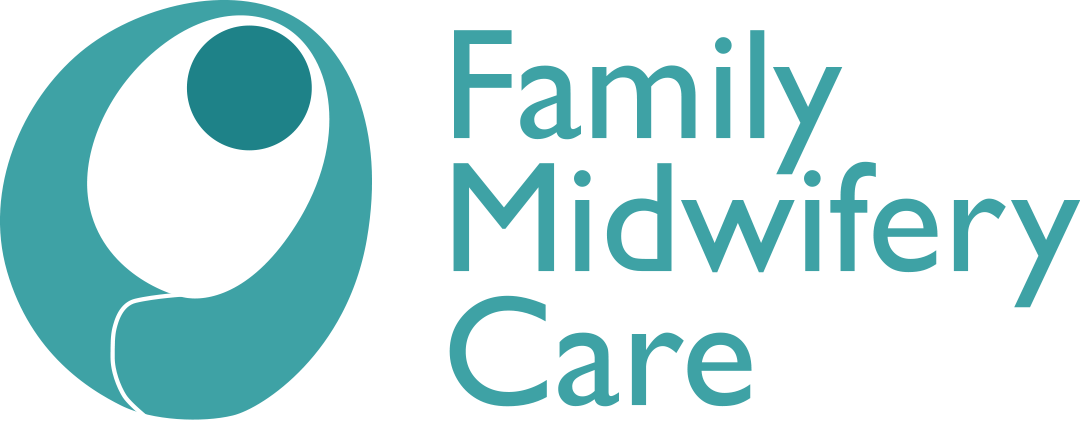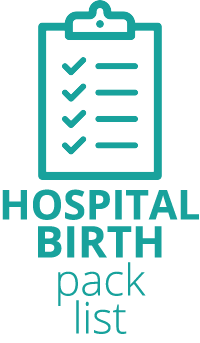Birth at Home or a Hospital – The Choice is Yours
A midwife can attend births at home or in a hospital Guelph General Hospital (GGH)
As experts in normal birth, midwives provide care to women during labour and birth in either a woman’s home or in a hospital. There are many factors to consider when making a decision about where to have your baby. Your midwife will assess your health needs and provide information to ensure you can make a safe and informed decision.
Midwifery clients who give birth at home:
- May feel safer and more relaxed than at the hospital.
- Have the lowest likelihood of needing medical interventions such as c-section, epidural or episiotomy.
- May find it advantageous not to travel before or after giving birth.
- May enjoy the familiarity and intimacy of being at home.
Midwifery clients who give birth in hospital:
- May feel safer and more relaxed than at home.
- May be able to go home within hours of giving birth if they wish.
- If you have planned a home birth, you can change your mind and move to a hospital once you are in labour.

Home Birth Resources:
Give Birth at Home
There is a lot of good evidence showing that home birth is safe for low-risk healthy clients with midwives in attendance. This is a choice for clients and families in the care of midwives. Midwives bring portable versions of emergency equipment and supplies such as suction, oxygen, intravenous fluids, tools and equipment to suture tears and medications for the prevention and treatment of postpartum hemorrhage (heavy bleeding). Our training includes management of the rare sudden emergencies that might arise at a home birth. Two midwives attend the birth. A second midwife usually comes when the arrival of the baby is near to assist your primary midwife.
Some clients are more comfortable and relaxed at home. As a result they will have better progress in labor and will enjoy the experience of giving birth much more at home than in the hospital. The watchful guidance of the midwife will ensure early recognition of potential complications and the hospital continues to be an option at any time. Home birth is also a great experience for partners and other family members.
When you plan a home birth, we will come to your home when you are in labour. We will set up our equipment and monitor you and your baby’s health. We will work with you to find what helps you cope with your labour. When the birth is close a second midwife (who you usually do not know) will come to assist your primary midwife. After the birth we will give you stitches if you need them, help you to breastfeed, make sure you are well, help you up to the bath or shower, ensure you eat something and do a head to toe exam for the baby. We will stay with you for 3 hours. Usually we leave after we have cleaned up from the birth and tucked you into your own warm, clean bed.
If you are considering this option your midwives will be happy to discuss home birth with you.
Home Birth FAQs:
How messy is a home birth?
We expect to leave you with 1 bag of laundry and 1 bag of garbage. There are a few simple steps to protect your floor and mattress. Your midwife will do a home visit between 36 and 38 weeks of pregnancy if you are planning a home birth and guide you on how to prepare your home. Most women who have had home births are amazed by how little mess is left after the birth.
Supplies recommended for home birth.
Supplies – Home Births
(PDF for print: Supplies for Home birth)
Everything on the list for Labour and Hospital Births
(PDF for print: What to Pack for a Hospital Birth)
- 1 roll of paper towels
- Disposable plastic container with lid (large ice cream container size) for placenta
- 2 large containers (laundry basket, box or pail) lined with garbage bags (one is for laundry and one is for garbage)
- Flashlight or movable lamp
- Portable space heater to ensure a warm birth place, if necessary
- Unopened bar of soap or soap dispenser for midwives to wash hands
- Large mirror to watch birth, if desired
- Electric kettle or slow cooker for preparing hot compresses
- 10 clean wash clothes for hot compresses
- 6 clean bath towels or 10 — 12 receiving blankets to dry baby right after birth (likely will get soiled)
- Receiving blankets for baby
- Package of “home birth supplies” that your midwife gave you
Preparing the birthing room and bathroom
Make the bed with clean linen. Cover the clean sheets with a shower curtain or heavy plastic drop sheet (this is to protect your mattress during the birth). Cover the plastic layer with clean older linens – bottom and top sheet (these may get stained).
The bath tub should be cleaned and well rinsed in early labour as you may want to use it.
Prepare a bag for baby and yourself with clothing, diapers, pads, etc., in case we need to go to the hospital.
What midwives bring to a home birth?
Midwives will bring oxygen tanks for mother and baby, mechanical suction and other equipment for resuscitation of a baby, heating pads to warm up baby blankets, intravenous fluids and tubing, equipment and materials for suturing tears, medications for postpartum hemorrhage (heavy bleeding), the baby’s medications (vitamin K and erythromycin eye ointment), birthing stool…
Are there any benefits to having a home birth?
Some women feel more relaxed and comfortable in their own environments. They appreciate not having to leave their home in the midst of strong labour. They have access to their own food/kitchen, clothes, bath/shower, and bed. They feel that the increased privacy also allows them to move more freely in their own environment. When women feel safe, supported and in control, their labours are perceived to be less painful and may be faster.
By choosing a home birth women are less likely to have an epidural or other medical interventions and it is less likely for them or their baby to have an infection after the birth.
What is a waterbirth?
Some women choose to birth in water as they find that water helps them to cope with contractions. Some prefer to labour in water and birth outside the tub while other women want to birth in the water. An appropriate tub for birth is deep enough for the belly to be submerged fully in the water and allows the midwife access almost fully around. Waterbirth is not available at the hospital. You can read more about waterbirth at the following link and discuss it with your midwives.
Reasons to transfer from home to the hospital.
Most reasons to transfer from home to the hospital are not emergencies. Your midwife is a specialist in normal and is often able to detect problems or challenges before they become emergencies. Your midwife will monitor you and your baby closely during your labour and immediate post-partum. Reasons for transport include slow progress, need for pain medication, meconium when your water breaks, high blood pressure or fever. Non-emergency transfers to the hospital are usually done by car.
What if there is an emergency or if I need a c-section?
In a true emergency, an urgent c-section may be necessary. We recommend being no more than a 30 minute car ride from a hospital with c-section capability if you are planning a home birth. We prepare for emergencies ahead of time. In an emergency, midwives would call an ambulance and the hospital to allow them to prepare for our arrival there.

Hospital Birth Resources:
Give Birth at a Hospital
Midwifery clients wanting a hospital birth give birth at Guelph General Hospital (GGH). We now have privileges at Groves Memorial Community Hospital (GMCH) in Fergus. We will ask for you to pre-register at the hospital even if you plan to give birth at home.
Your midwife may offer to meet you at home to assess your labour or you and your midwife may decide to meet at the hospital. Some women choose to stay at home for a significant portion of their labour. When we will advise you to move to the hospital depends on many factors.
You can expect that your midwife will be with you throughout your active labour, the birth and for about 3 hours after. A second midwife will be called when you are close to delivery to assist your primary midwife. At the hospital you may take a shower, go in the Jacuzzi tub, sit on an exercise ball, walk in the hallways…. Your midwife will work with you to find what helps you through your labour. Midwives use the technologies available in the hospital when needed. Doctors and nurses are not present at a normal hospital birth with midwives.
After the birth, your midwives will give stitches if you need them, help you breastfeed, do a head to toe exam of your baby and complete paperwork. We will ensure you eat something and have help to get to the washroom/shower and call housekeeping to tidy your room. If everything has been normal, you will be offered early discharge or a 24 hour hospital stay. Your midwife is still available to you 24 hours a day after you have your baby.
Usually babies are cared for by their parents in the mother’s hospital room. Nurses are available for emergencies and to give breastfeeding help. Your midwife will check on you every day you are in hospital. At Guelph General, babies who need more care will be cared for by nurses and a paediatrician in the special care nursery. Babies who need even more specialized care may be transported to a different hospital.
Families need to bring their own supplies to the hospital including diapers for babies. A list of things to bring with you is available here.
Guelph General Hospital Birthing Unit Tour
Hospital Pre-Registration
We ask all clients to pre-register during pregnancy at one of the two hospitals where we have privileges. If you plan a home birth, this will be your ‘back up’ hospital.
At Guelph General Hospital you need to fill out the pre-registration form. You can drop off your completed form to your midwives or to the drop box outside the Family Birthing Unit on the 6th floor of the hospital (Mon -Fri: 8am-4pm.)
If you are considering this option your midwives will be happy to discuss a hospital birth with you.
Hospital Birth Information:
What to bring to the hospital for yourself
- Food and drinks for laboring woman and her support people
- A couple of packages of Maxi pads–overnight size
- Portable music player (if desired)
- Clothes to labor in if you prefer not to wear a hospital gown
- 1 or 2 pillows from home (not in white cases)
- Hairbrush, toothbrush and paste, other personal care items as desired
- Bathrobe and slippers
- Change of clothes for going home (comfortable and loose)
- Camera / video camera
- Visa or cash for parking
- $20.00 (refundable) for a pass for 24 hour access for your support person at Guelph General only
- Health card and additional health insurance information, if applicable
- Don’t forget your manila envelope
What to bring to the hospital for baby
- At least two hats–one soft one that we can put it on the baby right after
- birth
- 2 diaper shirts
- 2 sleepers
- Socks
- Blankets
- Car seat
- Diapers
- Extra warm clothing and blankets for winter births
- Vaseline or olive oil for baby’s bottom
For Labouring at Home
- Gravol and Tylenol – for rest in early labor
- Digital oral thermometer
- Covering to protect carpets/mattress–consider plastic drop sheets or shower curtains from the Dollar Store
- Extra pillows
- Bendable drinking straws
- Massage lotion or oil
- Lip balm
- Hot water bottle or rice bag




